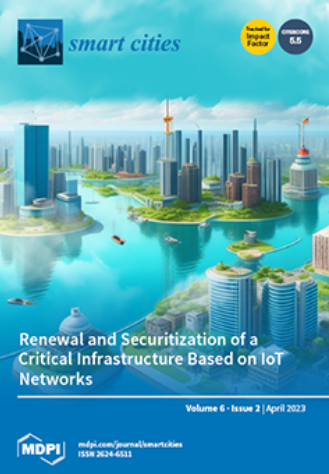Smart Grid Resilience for Grid-Connected PV and Protection Systems under Cyber Threats
IF 5.5
Q1 ENGINEERING, ELECTRICAL & ELECTRONIC
引用次数: 0
Abstract
In recent years, the integration of Distributed Energy Resources (DERs) and communication networks has presented significant challenges to power system control and protection, primarily as a result of the emergence of smart grids and cyber threats. As the use of grid-connected solar Photovoltaic (PV) systems continues to increase with the use of intelligent PV inverters, the susceptibility of these systems to cyber attacks and their potential impact on grid stability emerges as a critical concern based on the inverter control models. This study explores the cyber-threat consequences of selectively targeting the components of PV systems, with a special focus on the inverter and Overcurrent Protection Relay (OCR). This research also evaluates the interconnectedness between these two components under different cyber-attack scenarios. A three-phase radial Electromagnetic Transients Program (EMTP) is employed for grid modeling and transient analysis under different cyber attacks. The findings of our analysis highlight the complex relationship between vulnerabilities in inverters and relays, emphasizing the consequential consequences of affecting one of the components on the other. In addition, this work aims to evaluate the impact of cyber attacks on the overall performance and stability of grid-connected PV systems. For example, in the attack on the PV inverters, the OCR failed to identify and eliminate the fault during a pulse signal attack with a short duration of 0.1 s. This resulted in considerable harmonic distortion and substantial power losses as a result of the protection system’s failure to recognize and respond to the irregular attack signal. Our study provides significant contributions to the understanding of cybersecurity in grid-connected solar PV systems. It highlights the importance of implementing improved protective measures and resilience techniques in response to the changing energy environment towards smart grids.网络威胁下并网光伏和保护系统的智能电网恢复能力
近年来,分布式能源资源(DER)与通信网络的集成给电力系统控制和保护带来了重大挑战,这主要是智能电网和网络威胁出现的结果。随着智能光伏逆变器的使用,并网太阳能光伏 (PV) 系统的使用不断增加,基于逆变器控制模型,这些系统易受网络攻击及其对电网稳定性的潜在影响成为一个重要问题。本研究探讨了选择性针对光伏系统组件的网络威胁后果,特别关注逆变器和过流保护继电器 (OCR)。这项研究还评估了这两个组件在不同网络攻击情况下的相互关联性。采用三相径向电磁瞬态程序 (EMTP) 进行电网建模和不同网络攻击下的瞬态分析。我们的分析结果凸显了逆变器和继电器漏洞之间的复杂关系,强调了影响其中一个组件对另一个组件造成的后果。此外,这项工作还旨在评估网络攻击对并网光伏系统整体性能和稳定性的影响。例如,在对光伏逆变器的攻击中,OCR 在持续时间很短的 0.1 秒脉冲信号攻击中未能识别和排除故障,这导致了相当大的谐波畸变,并由于保护系统未能识别和响应不规则的攻击信号而造成大量电力损失。我们的研究为了解并网太阳能光伏系统的网络安全做出了重要贡献。它强调了为应对智能电网不断变化的能源环境而实施改进的保护措施和弹性技术的重要性。
本文章由计算机程序翻译,如有差异,请以英文原文为准。
求助全文
约1分钟内获得全文
求助全文
来源期刊

Smart Cities
Multiple-
CiteScore
11.20
自引率
6.20%
发文量
0
审稿时长
11 weeks
期刊介绍:
Smart Cities (ISSN 2624-6511) provides an advanced forum for the dissemination of information on the science and technology of smart cities, publishing reviews, regular research papers (articles) and communications in all areas of research concerning smart cities. Our aim is to encourage scientists to publish their experimental and theoretical results in as much detail as possible, with no restriction on the maximum length of the papers published so that all experimental results can be reproduced.
 求助内容:
求助内容: 应助结果提醒方式:
应助结果提醒方式:


